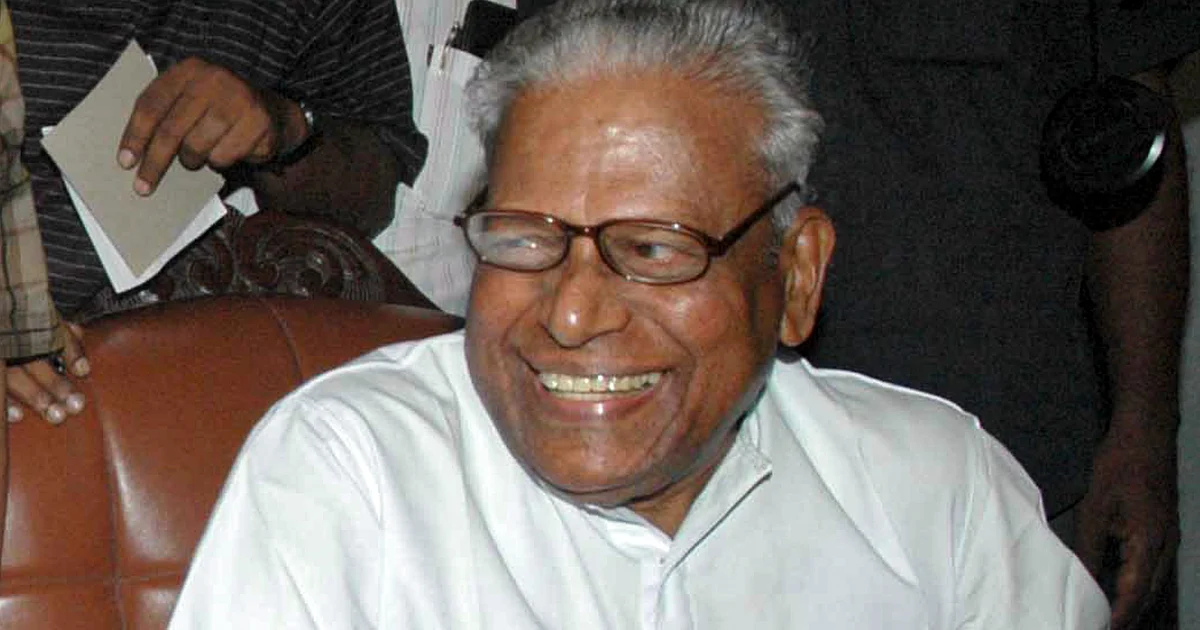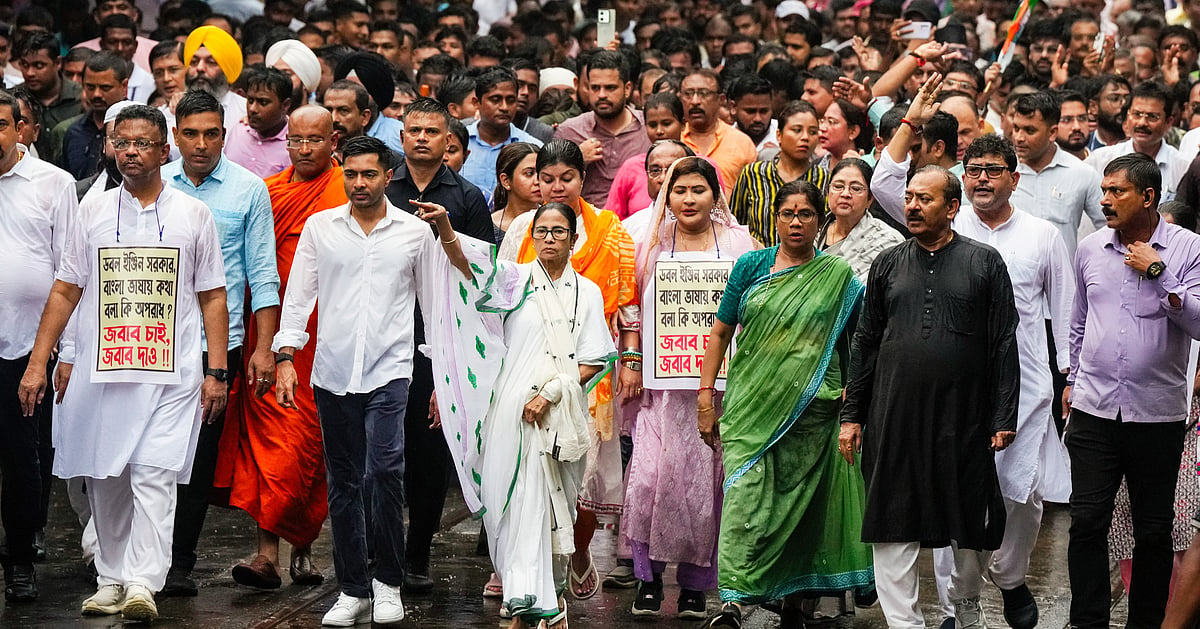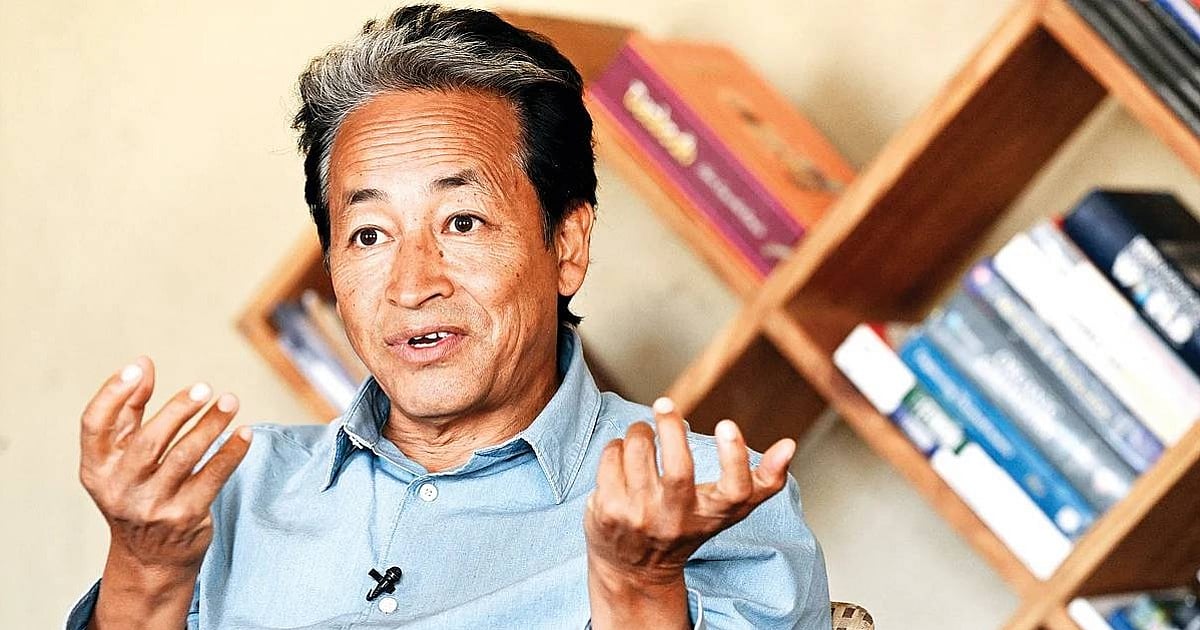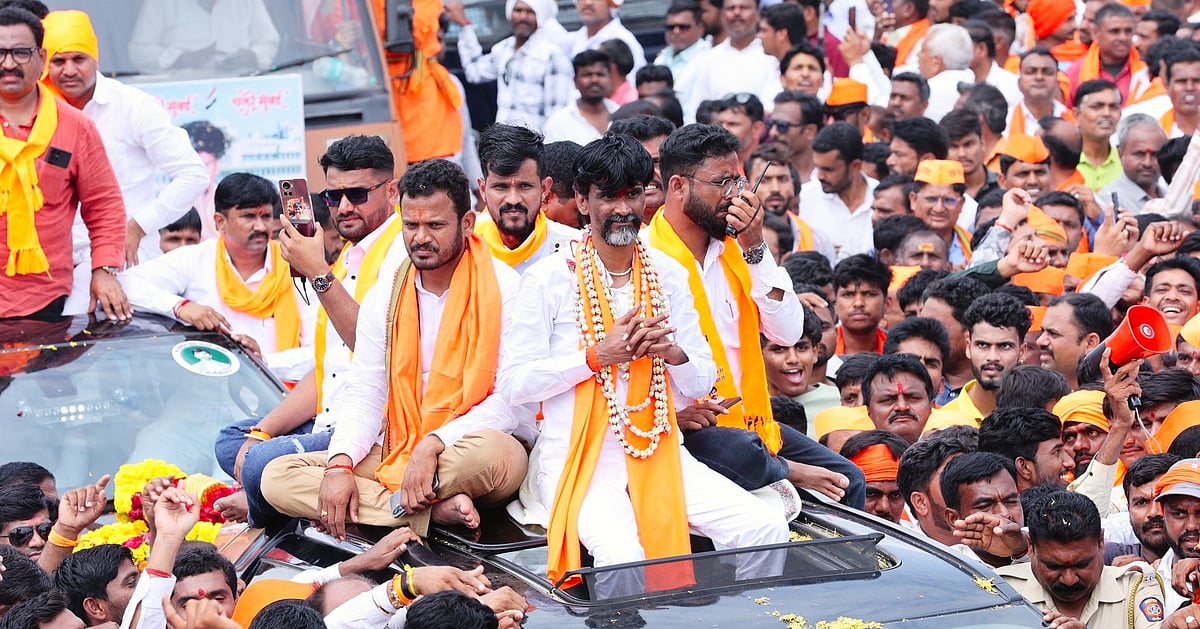National News
Former Kerala Chief Minister vs Achuthanandan dies in 101

Talking to reporters at the hospital, CPI (M) State Secretary MV Govindan said that the body is kept here at the AKG study and research center to pay tribute to the people here during the day, it will be taken to their residence, and then to pay tribute to the public in Darbar Hall on Tuesday morning. Later, his mortal remains will be taken to Alappuzha.
He said that Achuthanandan’s cremation will be held in Alappuzha Valia Chudukadu till Wednesday afternoon in a public crematorium.
Thousands of people, including senior citizens, youth, women and students, emphasized the busy road in front of the old AKG center here when their body was brought from the hospital to catch the last glimpse of the Marxist veteran.
Despite the late hours, the former party headquarters saw an unprecedented crowd, as common citizens and party workers gathered to pay their final honors when their bodies were first kept for public tribute.
Earlier in the day, after his deteriorating health reports, Chief Minister Pinarayi Vijayan and CPI (M) leaders reached the hospital.
People from different regions and political ideologies of life performed his death.
While leftist party leaders and activists reminded of the impact of “Comrade vs.” in shaping their political life and ideologies, their political opponents praised their unrelated stance against corruption, their rare communist values and politics beyond politics.
Governor Rajendra Vishwanath Arlekar described Achuthanandan in Indian politics as a “huge person” and a team of the communist movement.
His death marks the end of an era in India’s leftist political history, he said in a statement.
Chief Minister Vijayan said that Achuthanandan was a symbol of a lively tradition of struggle, extraordinary determination and a sense of unrelated fight.
He said that Achuthanandan has a century life, during which he stood with the common people and raised their concerns, which is associated with the modern history of Kerala.
He said, “VS’s contribution to the Opposition in the Government of Kerala, CPI (M), Left Democratic Front and the opposition in various stages is unique,” he said.
Born on 20 October 1923 in a coastal village, Pannpara, a coastal village in Alappuzha district, Achuthanandan’s early life was marked with difficulty and poverty.
He lost his mother at the age of four and his father still forced him to leave his studies after class VII in school. He briefly worked as a laborer in a textile shop and later in a coir factory.
His political journey began in the 1940s, inspired by the famous communist leader P Krishna Pillai.
In 1943, he represented Alappuzha at the Communist Party Conference.
During the 1946 Pannpara-Vayalar rebellion, he went underground and was later arrested and severely beaten. Due to the death by the police, he was about to be buried in the forest when it was revealed that he was still alive and was taken to the hospital.
Despite being tortured during the 1946 rebellion, he returned to political activism. In 1956, he joined the state committee of the party and increased continuously to organize major national posts.
In 1964, he was one of the 32 National Council members, who separated from the Communist Party to create an important moment in Indian Left politics, CPI (M).
He joined the Central Committee of the party in the same year and joined the Polit Bureau in 1985.
Achuthanandan is known for his integrity, faster speeches in Malayalam, and a firm trend against corruption, land graves and power misuse.
Even in his later years, he was extremely popular and widely honored for dedication to common people.
National News
A toxic story now staring at Bengalis everywhere

Islam, head of the welfare board of migrant workers of the state, has also made the issue wider compared to party politics. He said, “Anti-Bengali forces will not leave anyone, whether it is a member of the Matua, Rajbanshi, or a indigenous community,” he warned, urged solidarity in communities.
For many people, these incidents echo a chronic enmity. The ‘Bongal Kheda’ campaign of Assam in the 1960s targeted Bengalis for expulsion. In 2018, ULFA militants killed five Bengali Hindu women in Tinsukia. Now what is different is the reach of the slur: from the villages of Odisha to the hotel counters in Noida, from Nirodh camps in Assam to the streets of Kolkata.
Nobel Prize winner Amtya Sen has called this trend “unfortunate”, emphasizing that the Constitution gives every Indian the right to live and work anywhere in the country. The Bengal unit of the Congress has appealed to the Governor of Haryana to protect workers in an industrial hub like Paippat. Nevertheless, this assurance has been determined against the backdrop of fresh insults and violence.
Menak’s humiliation, Besra’s beating, sealdah attack, and the incident of Noida Hotel is united, with which the ‘Bangladeshi’ tag is thrown. It is a word that collapses identity, eradicates citizenship, and changes the simple task of speaking someone’s mother tongue in a responsibility.
For Bengalis who migrate to work or study, the results are Starks: they not only carry their belongings, but also the risk of having branded outsiders. For those people in Kolkata, the shock is still sharp – that in their own capital, once a bias imported from elsewhere now finds a house.
India’s pluralism has always rested on its languages, enrich the identity of each republic. To make Bengali – Language spoken by more than 100 million in India alone – a synonym of foreignliness is to highlight that cloth.
The resistance is stirring that the Menak refuses to back down, and to formally condemn these attacks to condemn these attacks. Nevertheless, the firm question of ‘Bangladeshi’ story from Noida hotels to Kolkata markets is a cool question: Can India save its citizens from turning into strangers in their land?
With PTI and media input
National News
Sonam Wangchuk accused the strategy of ‘Banana Republic’ as the authorities retrieved the Unive. land

Two days ago on 31 August, Ladakhi Climate activist and teacher Sonam Wangchuk posted a video on X, which confirmed that the local officials were targeting their Himalayan Institute of Alternative Teaching (HIL) by canceling the lease on the land allotted to the university seven years ago.
Describing the move as a sign of ‘Banana Republic’ rule, Wangchuk said that the Ladakh administration had notices that the government would show that the government would take back the land and demolish the premises built in five years. He questioned the time of this action, given that it did not happen in the last six years, but in October there was a coincidence with the upcoming Hill Council elections.
Wangchuk said, “Ladakh’s Hill Council promised the sixth schedule security measures in its last manifesto, but now they want to win the election without fulfilling that promise. I will not let this happen to the people of Ladakh,” Wangchuk said.
He alleged that from arrests to threats ranging from arrest to cancellation of land lease, and claimed that the authorities were now considering including the ED (Enforcement Directorate). Wangchuk welcomed an ED investigation, saying that it would highlight the work of eight years of the institute without salary and their personal financial contribution.
Wangchuk said that while Hial enjoys tax exemption, he himself pays income tax as a service for the nation. He also claimed that half a million rupees have been donated to the Ladakh UT government in its formation.
Climate activist attracted national attention with him Indefinite hunger strike In March 2024, when he began talks between leaders of Civil Society of Ladakh and Union Ministry of Home Affairs (MHA) when he came to a dead end of constitutional security measures for Ladakh.
Putting the issue forward, he and hundreds of followers also marched a leg for Delhi, forcing MHA to resume Ladakh dialogue in December 2024, although they remain inconclusive.
National News
Fadnavis ends rapidly after Jarang

Maharashtra Chief Minister Devendra Fadnavis on Tuesday, while facing the move of activist Manoj Zerennge to call his five -day fast on the demand of Maratha quota, said the government got a solution in the interest of the Maratha community.
Speaking to reporters in Nagpur, Fadnavis said that his government always focuses on the welfare of the Maratha community.
Jarang, who started his hunger strike on August 29, closed the protest on Tuesday afternoon when the Maharashtra government accepted most of its demands, including giving certificates of eligible Maratha Kunbi caste, which would make them eligible for reservation benefits available to other backward classes (OBCs).
The 43-year-old activist accepted a glass of fruit juice introduced by senior BJP minister Radhakrishna Vicky Patil, who heads the Cabinet Sub-Committee on Maratha reservation at Azad Maidan in South Mumbai, who mark the end of their fast.
-

 IPL3 months ago
IPL3 months ago‘Any nahhi numba hai’: Furious MS Dhoni loses cool, CSK shouts at players – Watch. Cricket news
-

 Sports3 months ago
Sports3 months ago‘Is MS Dhoni fit or not?’ Cricket news
-

 IPL3 months ago
IPL3 months agoExplained: Why Punjab Kings will get two opportunities to reach IPL 2025 final
-

 IPL3 months ago
IPL3 months agoAnil Kumbal on Shubman Gill: ‘Captaining India is different from the captaincy of a franchise’. Cricket news
-

 IPL3 months ago
IPL3 months agoIPL 2025: Hardik Pandya hit the unique ‘Triple Century’ in T20S.
-

 IPL3 months ago
IPL3 months ago‘No, you can’t take it …’: Shreyas Iyer’s bold statement. Cricket news
-

 National News3 months ago
National News3 months agoIndian Youth Congress started fellowship program for young lawyers
-

 Sports3 months ago
Sports3 months agoHow Rohit Sharma’s bad form with BAT is damaging Mumbai Indians’ IPL 2025 campaign
